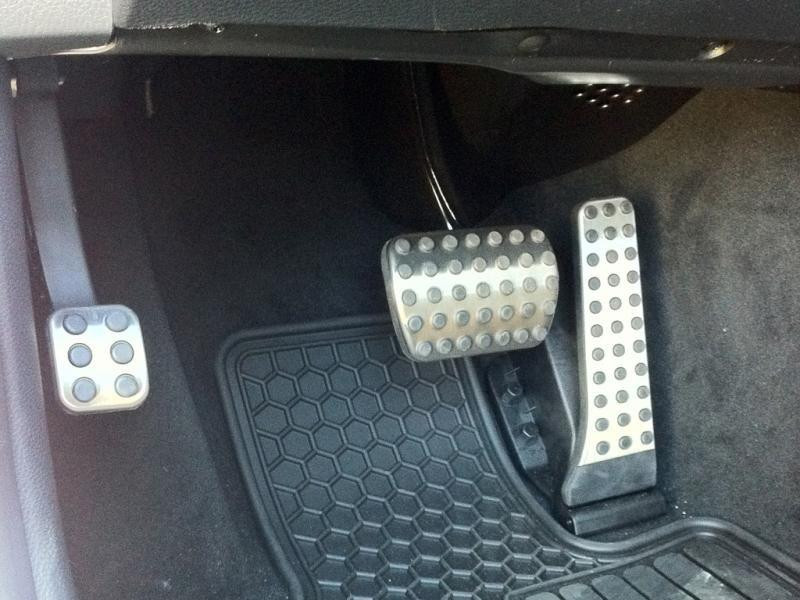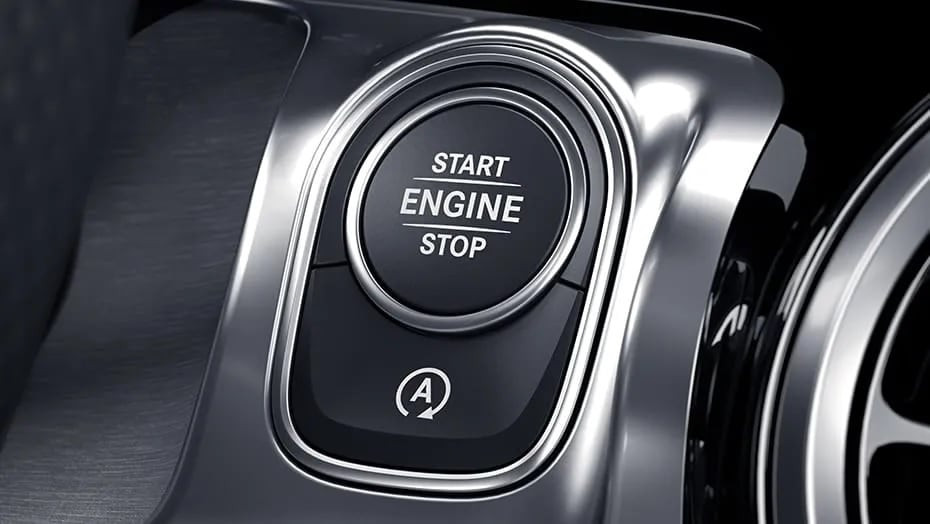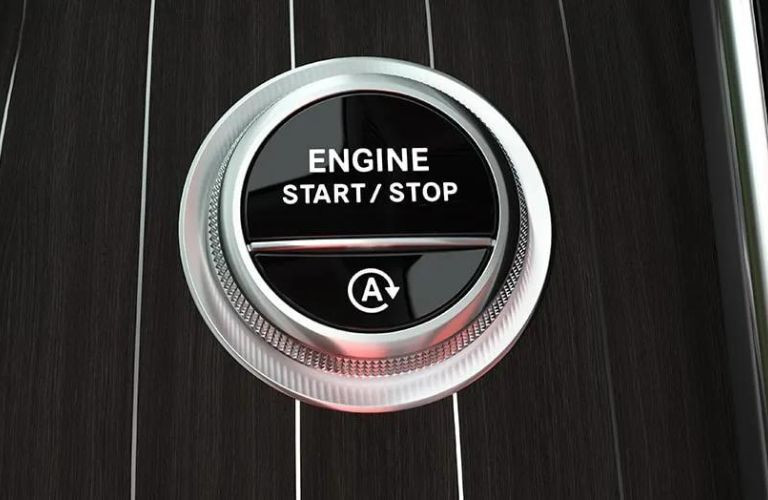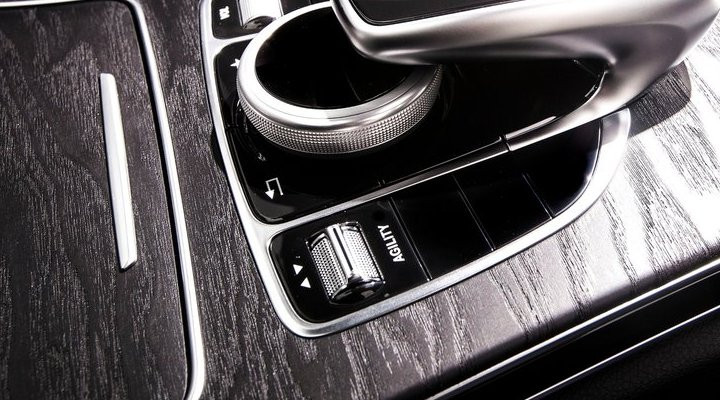Ecu Tuning For Mercedes Benz: Maximize Performance Now
ECU tuning for Mercedes Benz unleashes hidden power and improves engine efficiency. At CARDIAGTECH.NET, we provide the tools and expertise to optimize your Mercedes Benz’s performance. Enhance your driving experience and unlock your engine’s full potential with our top-tier tuning solutions and diagnostic instruments. Explore our range of offerings, including specialized Mercedes Benz diagnostic tools, and gain insights into how ECU remapping can transform your vehicle.
1. Understanding ECU Tuning for Mercedes Benz
ECU tuning, also known as engine control unit remapping, involves modifying the software that controls a vehicle’s engine. For Mercedes Benz vehicles, ECU tuning can significantly improve performance, fuel efficiency, and overall driving experience. The ECU is essentially the brain of your engine, dictating parameters such as fuel injection, ignition timing, and boost pressure. By optimizing these settings, tuners can unlock hidden potential within the engine.
According to a report by MarketWatch, the automotive ECU market is expected to grow substantially, driven by increasing demand for performance enhancement and fuel efficiency. ECU tuning allows for tailored adjustments to match specific driving conditions or performance goals, providing a customized driving experience.
1.1. What is an ECU?
The Engine Control Unit (ECU) is a sophisticated computer that manages various aspects of an engine’s operation. It receives data from numerous sensors throughout the vehicle and uses this information to make real-time adjustments. These adjustments ensure the engine operates efficiently and effectively.
1.2. How Does ECU Tuning Work?
ECU tuning involves reprogramming the ECU’s software to alter the engine’s parameters. This process can be done through various methods, including:
- ECU Remapping: Modifying the existing software on the ECU.
- Chip Tuning: Replacing the ECU’s chip with a modified version.
- Piggyback Systems: Adding an external device that intercepts and modifies the ECU’s signals.
The choice of method depends on the specific goals of the tuning and the capabilities of the vehicle’s ECU.
1.3. Benefits of ECU Tuning for Mercedes Benz
ECU tuning offers several advantages for Mercedes Benz owners:
- Increased Horsepower and Torque: Optimizing fuel and ignition settings can significantly boost engine power.
- Improved Fuel Efficiency: Adjusting air-fuel ratios and other parameters can enhance fuel economy.
- Enhanced Throttle Response: Tuning can reduce lag and improve the responsiveness of the throttle.
- Customization: ECU tuning allows for tailored adjustments to suit specific driving styles or modifications to the vehicle.
Many Mercedes Benz owners report noticeable improvements in their vehicle’s performance and driving experience after ECU tuning.
2. Identifying Your Tuning Needs
Before diving into ECU tuning, it’s essential to identify your specific needs and goals. Understanding what you want to achieve will help you choose the right tuning options and ensure the best results.
2.1. Assessing Current Performance
Begin by evaluating your Mercedes Benz’s current performance. Note any areas where you feel the vehicle is lacking, such as acceleration, throttle response, or fuel efficiency. Consider the following questions:
- How does the car perform under different driving conditions (e.g., city, highway, track)?
- Are there any noticeable delays in throttle response?
- What is the current fuel economy?
- Are there any specific performance issues you want to address?
Answering these questions will provide a clear picture of your vehicle’s current state and help you set realistic goals for tuning.
2.2. Defining Performance Goals
Next, define your performance goals. Do you want to increase horsepower for track racing, improve fuel efficiency for daily driving, or enhance overall responsiveness? Common goals include:
- Maximum Horsepower: Achieving the highest possible power output for racing or performance driving.
- Improved Fuel Economy: Optimizing engine settings to reduce fuel consumption.
- Enhanced Throttle Response: Reducing turbo lag and improving acceleration.
- Balanced Performance: Achieving a combination of power, efficiency, and responsiveness.
Clearly defining your goals will guide the tuning process and help you select the appropriate tuning solutions.
2.3. Matching Tuning to Driving Style
Consider your driving style when choosing ECU tuning options. A tune optimized for aggressive driving may not be suitable for someone who primarily drives in the city. Different driving styles may benefit from different tuning approaches:
- Daily Driving: Focus on improving fuel efficiency and throttle response.
- Performance Driving: Prioritize increasing horsepower and torque.
- Track Racing: Optimize for maximum power output and handling.
Matching the tuning to your driving style will ensure the best possible results and an enjoyable driving experience.
Alt: Assessing Mercedes Benz ECU Tuning Needs for Performance Enhancement
3. Types of ECU Tuning for Mercedes Benz
Several types of ECU tuning are available for Mercedes Benz vehicles, each offering different benefits and approaches. Understanding these options will help you choose the best solution for your needs.
3.1. ECU Remapping
ECU remapping involves modifying the existing software on the vehicle’s ECU. This is one of the most common and versatile tuning methods. Remapping can adjust various engine parameters, including fuel injection, ignition timing, and boost pressure.
Advantages:
- Customization: Allows for precise adjustments to suit specific needs.
- Cost-Effective: Generally less expensive than other tuning methods.
- Reversibility: The original ECU map can be restored if needed.
Disadvantages:
- Requires Expertise: Remapping requires specialized knowledge and equipment.
- Potential Risks: Incorrect remapping can damage the engine.
3.2. Chip Tuning
Chip tuning involves replacing the ECU’s chip with a modified version. This method was more common in older vehicles but is still used in some cases. The new chip contains a modified program that alters the engine’s performance.
Advantages:
- Direct Control: Provides direct control over the ECU’s programming.
- Performance Gains: Can result in significant performance improvements.
Disadvantages:
- Invasive: Requires physical modification of the ECU.
- Less Flexible: Difficult to adjust the tuning after installation.
3.3. Piggyback Systems
Piggyback systems are external devices that intercept and modify the signals between the ECU and the engine. These systems allow for tuning without directly altering the ECU’s software.
Advantages:
- Non-Invasive: Does not require modifying the ECU’s original programming.
- Easy Installation: Typically easier to install than other tuning methods.
- Removability: Can be easily removed without leaving a trace.
Disadvantages:
- Limited Control: Offers less control over engine parameters compared to remapping.
- Compatibility Issues: May not be compatible with all Mercedes Benz models.
3.4. Performance Tuning Software
Performance tuning software allows users to adjust ECU settings using a computer or mobile device. These tools often come with pre-loaded maps and allow for custom tuning adjustments.
Advantages:
- User-Friendly: Easy to use, even for beginners.
- Flexibility: Allows for on-the-fly adjustments.
- Diagnostic Capabilities: Often includes diagnostic tools for monitoring engine performance.
Disadvantages:
- Complexity: Tuning software can be complex and require a learning curve.
- Potential Risks: Incorrect settings can damage the engine.
Alt: Mercedes Benz ECU Tuning Software Interface Displaying Engine Parameters
4. Choosing the Right Tuning Service
Selecting the right tuning service is crucial to ensure the best results and avoid potential damage to your Mercedes Benz. Consider the following factors when choosing a tuning service.
4.1. Researching Tuning Providers
Start by researching different tuning providers. Look for reputable companies with experience tuning Mercedes Benz vehicles. Check online reviews and ask for recommendations from other Mercedes Benz owners.
4.2. Checking Credentials and Experience
Verify the credentials and experience of the tuning provider. Ensure they have the necessary certifications and a proven track record of successful tuning projects. Ask about their experience with Mercedes Benz vehicles and the specific tuning methods they use.
4.3. Understanding Tuning Processes
Understand the tuning processes used by the provider. Ask about the tools and equipment they use, the steps involved in the tuning process, and the expected results. Make sure they follow industry best practices and prioritize the safety and reliability of your vehicle.
4.4. Evaluating Customer Support
Evaluate the customer support offered by the tuning provider. Ensure they are responsive, knowledgeable, and willing to answer your questions. A good tuning service will provide ongoing support and assistance to ensure your satisfaction.
4.5. Reviewing Warranties and Guarantees
Review the warranties and guarantees offered by the tuning provider. A reputable service will stand behind their work and offer a warranty to protect against potential issues. Make sure you understand the terms and conditions of the warranty before proceeding.
5. Step-by-Step Guide to ECU Tuning
ECU tuning involves several steps, from initial assessment to final testing. Here’s a step-by-step guide to help you understand the process.
5.1. Initial Assessment
The first step is an initial assessment of your vehicle. This involves:
- Diagnostic Scan: Checking for any existing issues or error codes.
- Performance Evaluation: Assessing the vehicle’s current performance and identifying areas for improvement.
- Data Logging: Recording data from various sensors to establish a baseline.
5.2. Data Analysis
The data collected during the initial assessment is analyzed to identify the optimal tuning parameters. This involves:
- Identifying Engine Limitations: Determining any limitations that may affect performance.
- Analyzing Sensor Data: Evaluating data from various sensors to understand engine behavior.
- Developing Tuning Strategy: Creating a plan for adjusting engine parameters to achieve the desired results.
5.3. ECU Reprogramming
The ECU is then reprogrammed with the new tuning parameters. This can be done through:
- Direct Reprogramming: Modifying the ECU’s software using specialized tools.
- Chip Replacement: Replacing the ECU’s chip with a modified version.
- Piggyback Installation: Installing an external device to modify ECU signals.
5.4. Dyno Testing
After reprogramming, the vehicle is tested on a dynamometer (dyno) to measure performance gains. This involves:
- Measuring Horsepower and Torque: Quantifying the increase in power output.
- Evaluating Air-Fuel Ratios: Ensuring the engine is running efficiently and safely.
- Adjusting Tuning Parameters: Making further adjustments to optimize performance.
5.5. Road Testing
The final step is road testing to ensure the tuning performs well under real-world driving conditions. This involves:
- Evaluating Throttle Response: Assessing the responsiveness of the throttle.
- Monitoring Fuel Efficiency: Checking for improvements in fuel economy.
- Ensuring Smooth Operation: Verifying that the engine runs smoothly and reliably.
6. Common Mistakes to Avoid
ECU tuning can be a complex process, and it’s essential to avoid common mistakes that can damage your vehicle or lead to poor results.
6.1. Neglecting Pre-Tuning Diagnostics
Failing to perform pre-tuning diagnostics can lead to overlooking existing issues that may affect the tuning process. Always perform a thorough diagnostic scan before tuning to identify and address any underlying problems.
6.2. Using Generic Tunes
Using generic, off-the-shelf tunes can be risky, as they may not be optimized for your specific vehicle or driving conditions. Opt for custom tuning that is tailored to your Mercedes Benz and your performance goals.
6.3. Overlooking Safety Parameters
Overlooking safety parameters, such as air-fuel ratios and boost levels, can lead to engine damage. Ensure the tuning process prioritizes safety and reliability.
6.4. Ignoring Post-Tuning Monitoring
Ignoring post-tuning monitoring can prevent you from detecting potential issues early on. Regularly monitor your vehicle’s performance and address any concerns promptly.
6.5. Choosing Unqualified Tuners
Choosing unqualified or inexperienced tuners can result in poor tuning and potential damage to your vehicle. Select a reputable tuning service with a proven track record of successful tuning projects.
7. Tools and Equipment for ECU Tuning
Having the right tools and equipment is essential for successful ECU tuning. Here are some of the key tools and equipment needed.
7.1. Diagnostic Scanners
Diagnostic scanners are used to read and clear error codes, monitor engine parameters, and perform various diagnostic tests.
7.2. ECU Programming Tools
ECU programming tools are used to reprogram the ECU with new tuning parameters. These tools can range from simple handheld devices to advanced software programs.
7.3. Dynamometers (Dynos)
Dynamometers are used to measure the power and torque output of an engine. They are essential for verifying performance gains and optimizing tuning parameters.
7.4. Data Logging Devices
Data logging devices are used to record data from various sensors during testing. This data is used to analyze engine behavior and fine-tune the tuning parameters.
7.5. Air-Fuel Ratio Meters
Air-fuel ratio meters are used to measure the air-fuel mixture in the engine. They are essential for ensuring the engine is running efficiently and safely.
At CARDIAGTECH.NET, we offer a comprehensive range of diagnostic and tuning tools designed to meet the needs of Mercedes Benz enthusiasts and professional tuners. Our products ensure precision, reliability, and optimal performance for your vehicle. Contact us at +1 (641) 206-8880 or visit our website CARDIAGTECH.NET for more information. Our address is 276 Reock St, City of Orange, NJ 07050, United States.
Alt: Mercedes Benz ECU Tuning Equipment Displayed on a Workbench
8. Maintaining Your Tuned Mercedes Benz
After ECU tuning, it’s essential to properly maintain your Mercedes Benz to ensure optimal performance and longevity.
8.1. Regular Servicing
Regular servicing is crucial to keep your tuned Mercedes Benz running smoothly. Follow the manufacturer’s recommended service intervals and address any issues promptly.
8.2. Monitoring Performance
Monitor your vehicle’s performance regularly to detect any potential problems early on. Pay attention to:
- Fuel Efficiency: Check for any sudden drops in fuel economy.
- Engine Noise: Listen for any unusual noises coming from the engine.
- Throttle Response: Assess the responsiveness of the throttle.
8.3. Using High-Quality Fluids
Use high-quality fluids, such as engine oil, coolant, and transmission fluid, to ensure optimal performance and protection.
8.4. Avoiding Extreme Conditions
Avoid subjecting your tuned Mercedes Benz to extreme conditions, such as excessive heat or cold, which can negatively impact performance and reliability.
8.5. Keeping Tuning Software Updated
If you’re using performance tuning software, keep it updated with the latest versions to ensure compatibility and optimal performance.
9. Legal and Warranty Considerations
Before proceeding with ECU tuning, it’s essential to understand the legal and warranty implications.
9.1. Local Regulations
Check local regulations regarding ECU tuning and emissions standards. Some modifications may not be legal in certain areas.
9.2. Warranty Implications
Understand the warranty implications of ECU tuning. Modifying the ECU may void the vehicle’s warranty. Check with your dealer or manufacturer to clarify the terms of your warranty.
9.3. Insurance Coverage
Review your insurance coverage to ensure it covers modifications made to your vehicle. Some insurance companies may not cover vehicles with ECU tuning.
9.4. Disclosure Requirements
Disclose any modifications made to your vehicle to potential buyers if you decide to sell it. Failure to disclose modifications can lead to legal issues.
9.5. Compliance with Emissions Standards
Ensure that your ECU tuning complies with local emissions standards. Non-compliant modifications can result in fines and penalties.
10. Real-World Examples and Case Studies
Examining real-world examples and case studies can provide valuable insights into the benefits and challenges of ECU tuning.
10.1. Case Study 1: Increased Horsepower
A Mercedes Benz C63 AMG underwent ECU tuning to increase horsepower for track racing. The tuning process involved remapping the ECU to optimize fuel and ignition settings. The result was a significant increase in horsepower and torque, improving the vehicle’s performance on the track.
10.2. Case Study 2: Improved Fuel Efficiency
A Mercedes Benz E350 was tuned to improve fuel efficiency for daily driving. The tuning process involved adjusting air-fuel ratios and other parameters to reduce fuel consumption. The result was a noticeable improvement in fuel economy, saving the owner money on gas.
10.3. Case Study 3: Enhanced Throttle Response
A Mercedes Benz CLA45 AMG was tuned to enhance throttle response and reduce turbo lag. The tuning process involved optimizing boost pressure and other parameters to improve acceleration. The result was a more responsive and enjoyable driving experience.
10.4. Example 1: Mercedes-Benz C-Class (W205) – Stage 1 Tuning
- Objective: Enhance daily driving performance and throttle response.
- Modifications: ECU remap to optimize fuel delivery, ignition timing, and boost pressure (if applicable).
- Results:
- Horsepower increase: +30-40 hp
- Torque increase: +40-50 lb-ft
- Improved throttle response and smoother power delivery
10.5. Example 2: Mercedes-Benz E-Class (W213) – Fuel Efficiency Tuning
- Objective: Improve fuel economy for long-distance driving.
- Modifications: ECU remap to optimize air-fuel ratios and engine load management.
- Results:
- Fuel economy improvement: 10-15%
- Slight increase in torque for better low-end performance
These examples illustrate the diverse benefits of ECU tuning and the importance of tailoring the tuning process to specific needs and goals.
ECU tuning for Mercedes Benz offers numerous benefits, including increased performance, improved fuel efficiency, and enhanced driving experience. By understanding the different types of tuning, choosing the right tuning service, and following best practices, you can unlock the full potential of your Mercedes Benz.
Ready to transform your Mercedes Benz? Contact CARDIAGTECH.NET today for expert ECU tuning solutions and top-quality diagnostic tools. Our team of experienced professionals is here to help you achieve your performance goals. Reach us at +1 (641) 206-8880 or visit our website CARDIAGTECH.NET. Our address is 276 Reock St, City of Orange, NJ 07050, United States.
FAQ: ECU Tuning for Mercedes Benz
1. What is ECU tuning for Mercedes Benz?
ECU tuning involves modifying the software in your Mercedes Benz’s Engine Control Unit (ECU) to enhance performance, fuel efficiency, or both.
2. What are the benefits of ECU tuning?
Benefits include increased horsepower and torque, improved fuel efficiency, better throttle response, and a more customized driving experience.
3. Is ECU tuning safe for my Mercedes Benz?
When performed by qualified professionals using proper techniques, ECU tuning is generally safe. However, improper tuning can damage your engine.
4. Will ECU tuning void my Mercedes Benz warranty?
Yes, ECU tuning can void your vehicle’s warranty. Check with your dealer or manufacturer for clarification.
5. How much does ECU tuning cost?
The cost of ECU tuning varies depending on the type of tuning, the vehicle model, and the tuning service provider. Expect to pay anywhere from $500 to $1500 or more.
6. How long does ECU tuning take?
The tuning process can take anywhere from a few hours to a full day, depending on the complexity of the tuning and the tuning service provider.
7. What tools are needed for ECU tuning?
Key tools include diagnostic scanners, ECU programming tools, dynamometers, data logging devices, and air-fuel ratio meters.
8. How do I choose the right tuning service?
Look for reputable companies with experience tuning Mercedes Benz vehicles, check credentials and experience, and evaluate customer support.
9. Can I reverse ECU tuning?
Yes, in most cases, ECU tuning can be reversed by restoring the original ECU map.
10. What are some common mistakes to avoid when tuning my ECU?
Avoid neglecting pre-tuning diagnostics, using generic tunes, overlooking safety parameters, and choosing unqualified tuners.
Contact CARDIAGTECH.NET at +1 (641) 206-8880 or visit our website CARDIAGTECH.NET to learn more about how we can help you optimize your Mercedes Benz’s performance. Our address is 276 Reock St, City of Orange, NJ 07050, United States.






